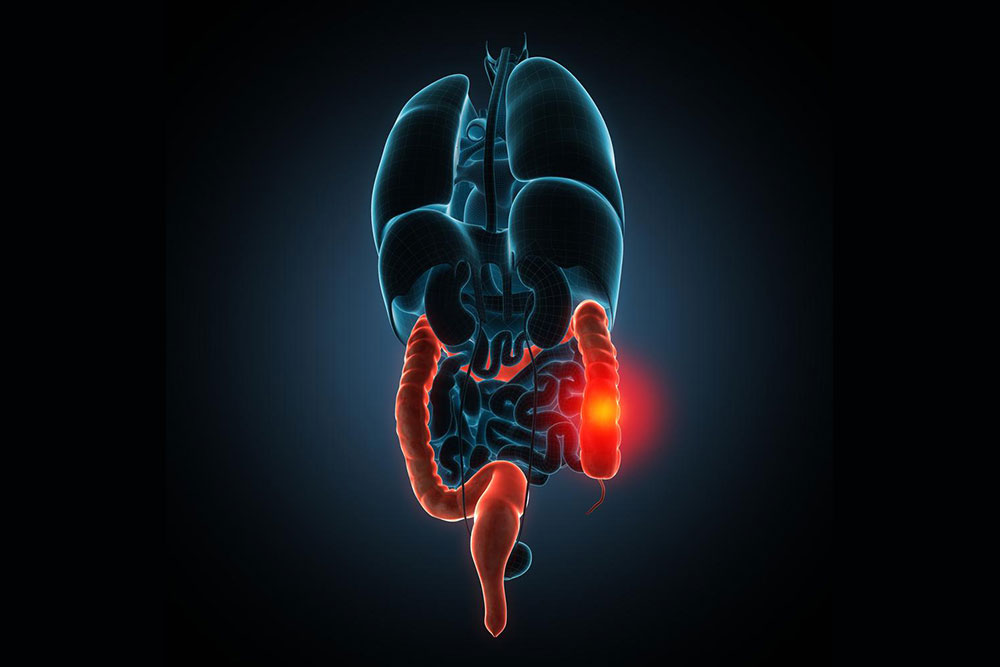Ulcerative Colitis – Its Symptoms and Causes
Ulcerative colitis is a bowel disease, resulting in inflammation. It can cause many other symptoms, like irritation and ulcers in the colon’s (large intestine) lining. The onset of this condition is generally seen among individuals between 15 and 30 years of age. Currently, this inflammatory health condition does not have any definitive cure, but it can be managed by seeking early treatment and adapting to a suitable food regimen recommended by a healthcare expert.

What are the symptoms of ulcerative colitis?
If one knows the symptoms, it will become easier to recognize the body’s signals for ulcerative colitis. It will allow one to seek medical help before the disease can become severe. In the early stages, the symptoms of ulcerative colitis might not be severe, so one must remain mindful to be able to recognize them. These symptoms include diarrhea, tiredness, sudden weight loss, abdominal cramping, and the reduction of red blood cells (known as anemia). As the disease progresses, other more serious symptoms might be noticed. These include pus, mucous, or blood in stool, fever, mouth sores, painful or red eyes, and nutrient or fluids loss. Some people also experience severe cramping, skin rashes, joint pain, liver diseases, and other symptoms that can cause them continuous discomfort. In the case of children, ulcerative colitis can also lead to delayed growth.
After learning of the symptoms and early signs of ulcerative colitis, stay vigilant. If one notices any symptoms, contact the doctor as soon as possible. Starting ulcerative colitis treatment early can help manage it more effectively.
Causes of ulcerative colitis
Research has proved that ulcerative colitis is a result of the immune system becoming overactive. When that happens, the immune system starts to attack the colon or large intestines. However, not all immune systems act similarly, so the reason is still unclear. Scientists have offered some ideas that might be the cause of ulcerative colitis.
Environmental factors
If one notices the symptoms of ulcerative colitis, they can be a result of environmental factors, like antigens, viruses, and bacteria.
Other immune system disorders
Having any type of immune system disorder exposes one to the possibility of developing other immune system-related issues. So, if one has a week immune system due to any other diseases, it might also result in ulcerative colitis.
Genes
Genetics plays a significant role in many disorders, and UC is one of them. The chances of one developing the condition increase if one of the parents has ulcerative colitis.
Diet for diverticulitis and ulcerative colitis
There is no meal plan that can help manage ulcerative colitis symptoms. However, excluding certain food items and adding ulcerative colitis-friendly ones can definitely help. One must also keep in mind that the symptoms, types, and degrees of the condition vary among people. So, the food regimen would need to be adjusted accordingly. Also, one must make the plan flexible because the condition can change over time and will require alteration.
However, the good news is that many digestive system-related conditions can be managed with the right plan. Here are some foods in the diet for diverticulitis and ulcerative colitis that should be excluded and included.
Foods to avoid
There are a few things that can cause more trouble when suffering from ulcerative colitis. These include spicy food, nuts and seeds, refined sugar, raw vegetables and fiber-rich foods like certain fruits and vegetables, candies and sugar-free gums that have sorbitol, popcorn, and foods with sulfate or sulfur. One must also consider excluding dried legumes, peas, beans, and carbonated and caffeine drinks.
An effective way to determine which food causes the symptoms of ulcerative colitis is by maintaining a food diary. One can make a note of everything they eat in the diary and list the symptoms they experience. This will help them recognize the food items that cause the most discomfort, and they can then exclude them from their meal regimen.
Foods to have
Here are some foods to include in a diet for diverticulitis and ulcerative colitis. Some research has shown that foods with linoleic acid have the ability to fight the effects of ulcerative colitis. Linoleic acid can be found in walnuts, olive oil, and coconut oil, so it is wise to include them in one’s diet. According to studies, probiotics can also help fight ulcerative colitis. Probiotics are gut-healthy bacteria that have the ability to reduce inflammation caused by ulcerative colitis. It is also believed that one can find relief from ulcerative colitis symptoms by having foods that are low in FODMAPs, including highly fermentable carbs. An experienced dietitian can help one create the right plan that is tailor-made for the condition.
While the tips mentioned above can help to fight the symptoms of ulcerative colitis, it is vital to follow a suitable treatment plan provided by the doctor. It is also important to keep the doctor updated about the condition, so they can help adjust one’s treatment accordingly.




